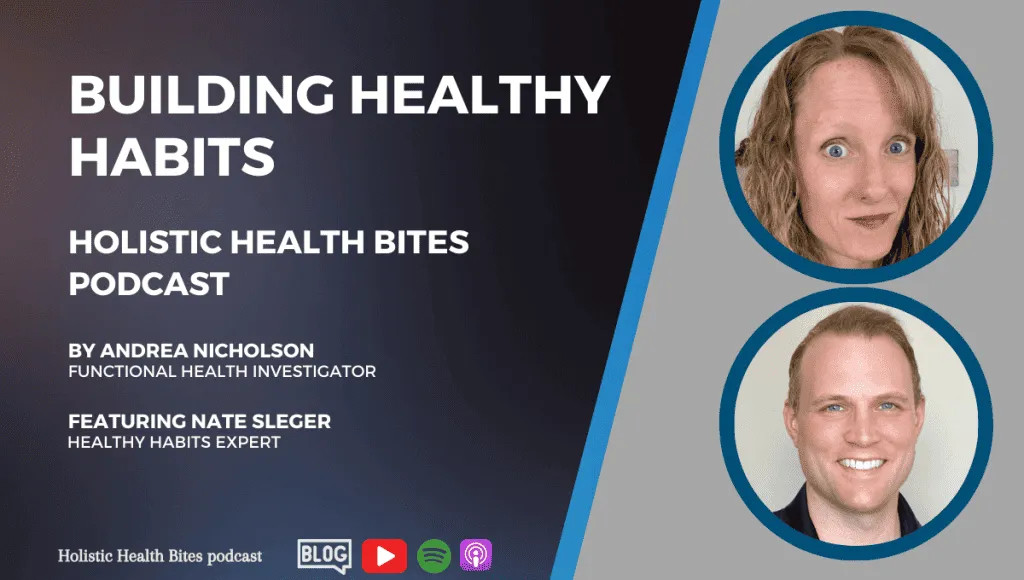
Could a Poor Microbiome Be Causing Obesity?
Could your gut microbes be causing excess weight to accumulate and make it harder to lose the weight? This new study would say yes!
This study was published in the journal Gut Microbes. This was a meta analysis of 15 studies and a total of 20 data sets from all over the world. Through this analysis, they looked at fecal samples from 3329 people (1494 were obese, 1835 were not). They found 25 predictable microbial species and 37 pathways related to obesity.
They found reductions in short chain fatty acid producing microbes, an increased firmicutes to bacteroidetes ratio. These are called phyla which are like the greater families of all of the microbes. These alterations lead to disrupted metabolism, fat production, gut-brain signaling related to hunger and satiety, inducing chronic inflammation in the body, and even in absorption of more calories from food.
Let’s talk a little more about the gut-brain axis…this is a major factor that deserves to extra attention. If the brain isn’t getting proper signals from the gut, this can leave you hungry, despite actually being adequately nourished and/or stuffed. This also alters the hormones involved in the reward center of the brain that can lead to more cravings, needing higher doses of dopamine rewarding foods before realizing that benefit. So, it may actually be your gut microbes that are making you overeat! Certain microbes, like Candida yeast, are also drivers of sugar cravings because they thrive on sugar. Your sweet tooth may be caused by yeast!
We’ve also seen in prior research that the microbial changes seen with obesity create more leaky gut which can impair immune function, increase inflammation, create food sensitivities, cause obesity related insulin resistance, and symptoms throughout the body like joint pain, brain fog, skin issues, and chronic infections.
Obesity impedes the immune system by changing the way your cells communicate with each other, the way microbes communicate with your cells, and in the production of white blood cells.
Reactive oxygen species from environmental toxins and ultra processed foods also alter insulin secretion, overall inflammation, and body fat production/maintenance. Did you know that stored toxins are surrounded by fat? This is a protective mechanism, but makes fat loss much harder because it’s actually saving you from harm. We are exposed to thousands of chemical toxins daily in our air, water, food, personal care products, cookware, home care products, medications, supplements, and even our clothing. It is so important to be mindful of the products you choose and have control over changing.
Processed food specifically have been shown to damage the intestinal lining, allowing for food, toxins and microbes to leak through, altering signaling pathways, and interfering with proper elimination.
There have been a wide range of studies that have looked at how to address these gut dysfunctions associated with obesity. This includes everything from simply cleaning up the diet (eliminating processed foods and chemical additives, focusing on a variety of quality whole foods), to doing stool or organic acids testing to identify the specific imbalances present, then creating targeted protocols involving diet, lifestyle, and supplementation to rebalance the gut, and lastly to medical procedures like fecal transplants from ideally healthy individuals into obese and unhealthy individuals. All methods have been shown to be tremendously valuable. The more severe the condition, the more advanced the remedy likely needs to be.
The great news is, most of this process can be done without pharmaceutical intervention, but can be done through diet, lifestyle, removing harmful substances, and natural supplements like herbs, botanicals, prebiotics, and probiotics.
If you’re interested in exploring how your gut may be involved in your health challenges, schedule a free call with me and let’s discuss options. You do not have to be obese or have overt digestive symptoms to have a gut imbalance. I’ll share a couple of quick client case studies:
1. A client who despite a YEAR of quality nutrition and appropriate exercise, could not lose weight. Her blood work indicated nutrient deficiencies, inflammation and underlying infection. We ran a stool test and found multiple pathogens including inflammatory bacteria, yeast, and even a parasite! She had no obvious gut symptoms, but clearly had a war going on in her gut. Her body was doing what it could to survive, so dropping fat was not a priority.
1. A client who despite a YEAR of quality nutrition and appropriate exercise, could not lose weight. Her blood work indicated nutrient deficiencies, inflammation and underlying infection. We ran a stool test and found multiple pathogens including inflammatory bacteria, yeast, and even a parasite! She had no obvious gut symptoms, but clearly had a war going on in her gut. Her body was doing what it could to survive, so dropping fat was not a priority.
2. A client who had multiple low impact fractures of her back (doing normal daily activities like carrying groceries), had been diagnosed with osteoporosis and struggled with constipation. Osteoporosis alone is a flag to me that she is either not taking in the right nutrients or she is not absorbing those nutrients in the gut. The constipation clearly also indicates a gut dysfunction. Her blood work and stool test also confirmed multiple imbalances in microbiome as well as low stomach acid and insufficient digestive enzymes.
3. A client who had a history of random bouts of swelling throughout his body, stress induced hives, digestive symptoms associated with some whole foods, and excess weight. Organic acids testing revealed yeast overgrowth, insufficient detoxification, and low beneficial bacteria. Addressing these imbalances completely stopped the swelling, food sensitivities, hives, improved energy for workouts, and he dropped excess body fat.





















0 Comments